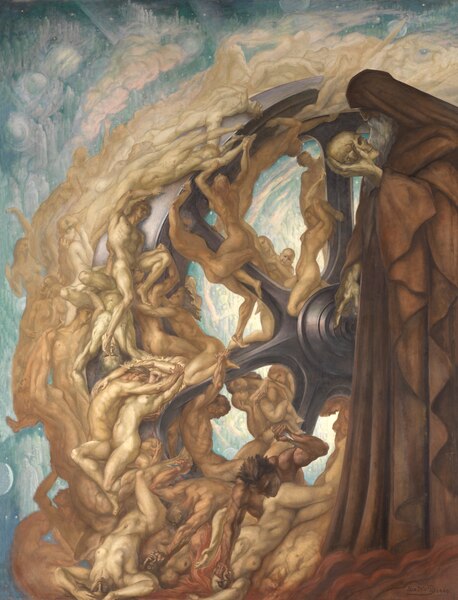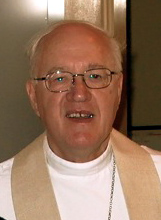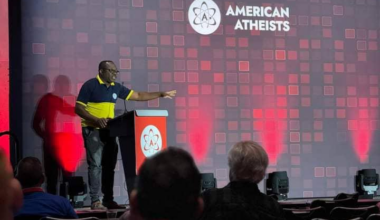
This might sound a little bit arrogant, but, after a lot of thought, I’m pretty sure that I know what happens when we die: another person will live.
‘Yeah, no s—,’ you might be saying. Admittedly, this does seem like a pretty basic observation. But when you take time to reflect on it, it becomes a bit more profound—even a little creepy.
There won’t be another me after I die. But there will be another I. That is, there will be another entity having a first-person, subjective experience.
So, there won’t be an experience of absence when you die—since the brain that was previously experiencing stuff is no longer operational. But there will be another person (or thing) experiencing something.
This idea, called Generic Subjective Continuity, was developed by the philosopher Tom Clark in his 1994 article ‘Death, Nothingness, and Subjectivity’. In the article, Clark guides us through a thought experiment (also well explained in this video) to illustrate the idea.
The first step in Clark’s argument is a simple one: when we are unconscious—for example when we go to sleep or are put under anaesthesia—we don’t experience the time that we are unconscious (unless we are dreaming, which, as Clark notes, is itself another form of experience). Our last memory is falling asleep and then our next experience is waking up, becoming conscious again, even though many hours may have passed. Even if one were somehow asleep for millions of years, the person would not experience that time in between. There would simply be the experience of falling asleep and then waking (barring any dreams in between). At no point is there ‘no experience’ or an absence of experience. Rather, there is an unbroken, continuous experience. Clark calls this personal subjective continuity. So far, so good.
But Clark extends the thought experiment to think about a time in the future when it might be possible to put someone in suspended animation and make various modifications to their body and mind. You begin with the original person, NA, and then they are put under—perhaps for 10 minutes, perhaps for 100 years—to undergo certain modifications, to become NA/mod (to borrow Clark’s terms, though substituting my own initials).
The changes are not drastic—say, a bionic arm and a stronger chess ability—and so NA/mod remains basically the same person as NA. Thus, when NA/mod wakes from the surgery, personal subjective continuity remains intact. NA/mod will remember going under and then his next experience will be waking up, and therefore from NA/mod’s perspective, it will seem like one single unbroken chain of experience. There will always be an experience of ‘having been there’, and there won’t then be an experience of absence from the original NA’s perspective.
But what if the modifications become ever more radical, giving the person a totally different personality or even totally different body parts, such that this new ‘NA/rad’ would be a completely different person from the original NA? There is nonetheless still a continuity. NA/rad still has the perspective of always having been there. There is no gap between NA’s last experience and NA/rad’s first one, but NA himself no longer exists. This is what Clark calls ‘death by transformation.’ NA does not die exactly. Rather, he changes so much that there is nothing left of the original person. Nonetheless, NA does not have an experience of not being around anymore. The context of experience simply changes, even if radically.
If you are following so far, you might anticipate the final step in Clark’s argument, which is that this transformation is precisely the same thing that happens with death and birth. When someone dies, their subjectivity is over. But they will not experience this end as nothingness, just as they did not experience the time before their birth as nothingness either. Rather, after the end of their first-person, subjective experience, there will be another person (or thing) having a first-person, subjective experience instead. This, in Clark’s terms, is generic subjective continuity. The experience of experience is continuous, but the person or thing experiencing it changes. In this view, as Clark says, ‘dying may seem more like the radical refreshment of subjectivity than its extinction.’
(If I have not done justice to the argument, I invite you to read Clark’s full article or watch the video linked above and below for more details.)
It is critical to emphasize that there is nothing mystical or spooky about this idea. It is completely compatible with a naturalistic world where there are no spirits or souls or other non-material ‘stuff.’ There will always be another entity experiencing something. You might be a human now. Okay, in fact, I’m willing to bet quite a lot of money that you are indeed a human now. But the next first-person experience might be something totally different. Maybe a chicken, or a beetle, or an artificial intelligence program. Who knows?
If you’re conscious, however, and can think of the idea, you can imagine that your own experience is a continuation of someone or something before you, just as a future person could imagine their experience is a continuation of yours. After I die, someone could read this essay and imagine their experience is a continuation of mine. And, in a way, they would not even be wrong. ‘My’ subjectivity has been ‘refreshed’ or ‘transformed’ and is now being experienced by someone else in a different context.
This is probably as close as we can get to a secular kind of reincarnation, though it’s important to stress that there is no transfer of a person’s ‘essence’ from one body to the next. But we can choose to imagine that our individual lives are a momentary part of a larger continuity of experience. Whether this kind of reincarnation is satisfying is another question, but it’s the best—and, in any case, only—one we’ve got.
Reincarnation is sometimes linked with the idea of karma, i.e. that your actions in this life will determine what kind of entity you are in the next life. If you’ve lived a good life, you’ll be rewarded with a good experience in the next one, and vice versa if you’ve lived a bad life. I don’t think there is any direct reason to think this is true. It seems entirely random what kind of experience ‘I’ will have next. But there might be an indirect reason that karma could be true. More on that later.

This view of death could be comforting because while your life may end, there will always be someone else who will live, who will be having experiences. So, in this way, your own death becomes slightly less important—though it does not make it any less difficult for those left behind.
At the same time, this view of what happens after death may not be comforting at all—it may in fact be frightening. How so? There is a lot of suffering in our world. Indeed, one could even make a strong case that most experiences are negative on balance. Of all the creatures on earth at this moment—taking into account not just humans but all the sentient creatures on the planet—is experience a good thing? Even aside from all the human misery on the planet, consider the billions of animals who are being factory-farmed at this very moment—their lives are basically constant suffering from birth to death.
So, this understanding of ‘secular reincarnation’ may not be totally comforting. And it could even be frightening, since there is no escape from having experiences. This ‘secular reincarnation’ therefore has some profound ethical implications. The philosopher John Rawls popularised a thought experiment called the veil of ignorance (or the ‘original position’). Rawls asked, What kind of society would we come up with if we were operating behind a veil of ignorance? This means that we would not know, for example, whether we would be rich or poor, what gender we might be, whether we would be able-bodied or disabled, etc. Rawls did not go this far, but we could even extend it beyond just the realm of humans to ask, What kind of world would we want if we might be, for example, a cow, or an insect?
The advantage of this thought experiment is to hopefully make people less likely to design and defend a society that would benefit only the group that they happen to belong to. For example, if you were a wealthy white man in the early 1800s in the American South, it might make complete sense to you that a system of race-based slavery was the correct way to organise society. But behind the veil of ignorance, you wouldn’t know if you were going to be the enslaver or the enslaved, and this lack of knowledge should—hopefully—lead you to design a more just and fair society.
Should we go further and try to abolish all suffering, period?
But Rawls’s thought experiment is not just a thought experiment: it’s literally what happens. You don’t know which experience ‘you’ will be having next. What does this mean? It means that it’s up to us to ensure that sentient experience is as good as possible for everyone—and everything—because you really don’t know how the dice roll of experience will go.
This is an extremely daunting task, even if we are just talking about the experiences future human beings will have—let alone the billions of mammals, or the trillions of insects, or the potentially infinite number of sentient artificial intelligence programs. And it may not even be clear what we should do. From my perspective, becoming a vegan might be one minimum step towards reducing animal suffering.
But should we go further and try to abolish all suffering, period? The grumpy nineteenth-century writer Thomas Carlyle joked about a ‘Universal Abolition of Pain Association’ to satirise people who tried to alleviate social ills, such as by abolishing slavery. But some people have really suggested that abolishing suffering in general should be our goal, which would require massive changes not just to humanity, but even, for example, to wild animals—‘reprogramming’ predators like lions to become vegans, too, so that they are not going around killing unfortunate gazelles. It seems hard to argue against the merits of removing suffering—who would argue in favour of suffering, after all? But, in practice, it seems virtually impossible to remove suffering completely.
Nonetheless, it follows that we have a duty to try to make life better for future humans—and other future-experiencing beings. In this secular reincarnation, then, the only sense in which karma could be true is that if you are a good person in this life, if you try to make sure future beings have better experiences, then the next ‘I’ will have a better and better chance of winding up with one of the good experiences.








3 comments
Fascinating idea! It seems to me it follows the closest to Buddhist tenants.
Thought experiment:
Imagine going through such a transformation TK => TK/rad, and not being “satisfied” by the change? So you begin hating yourself and suffering goes through the roof…
I have periods of such hate even if the transformation(s) are so small that I wish for a new refurbished brain, this shitty one has limited capacity… 😉
This assumes consciousness is one force or generic, every person’s sense of consciousness being the same. You’d have to question why the hypothetical character would reawaken in one new being or another – there’s a bit of a gap in cause and effect here that needs to be explored.
Your email address will not be published. Comments are subject to our Community Guidelines. Required fields are marked *
Donate